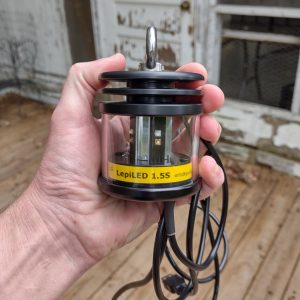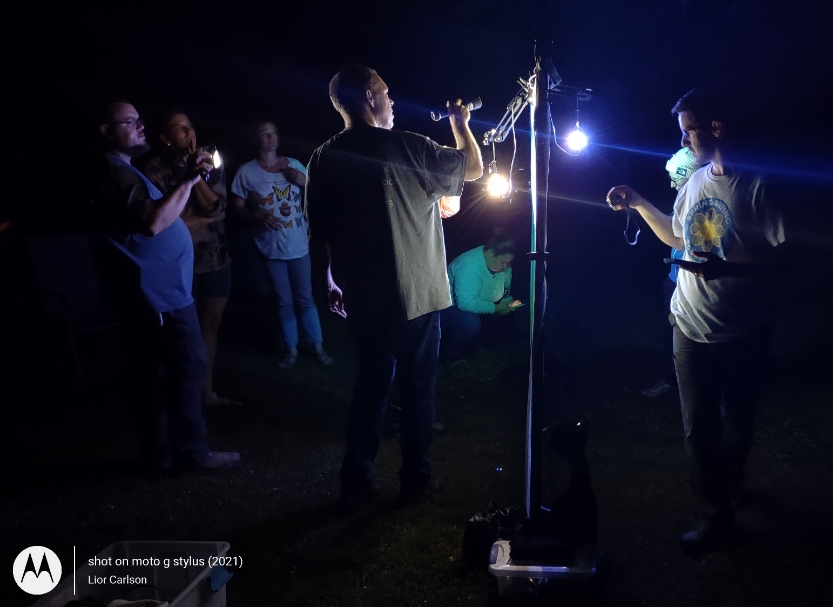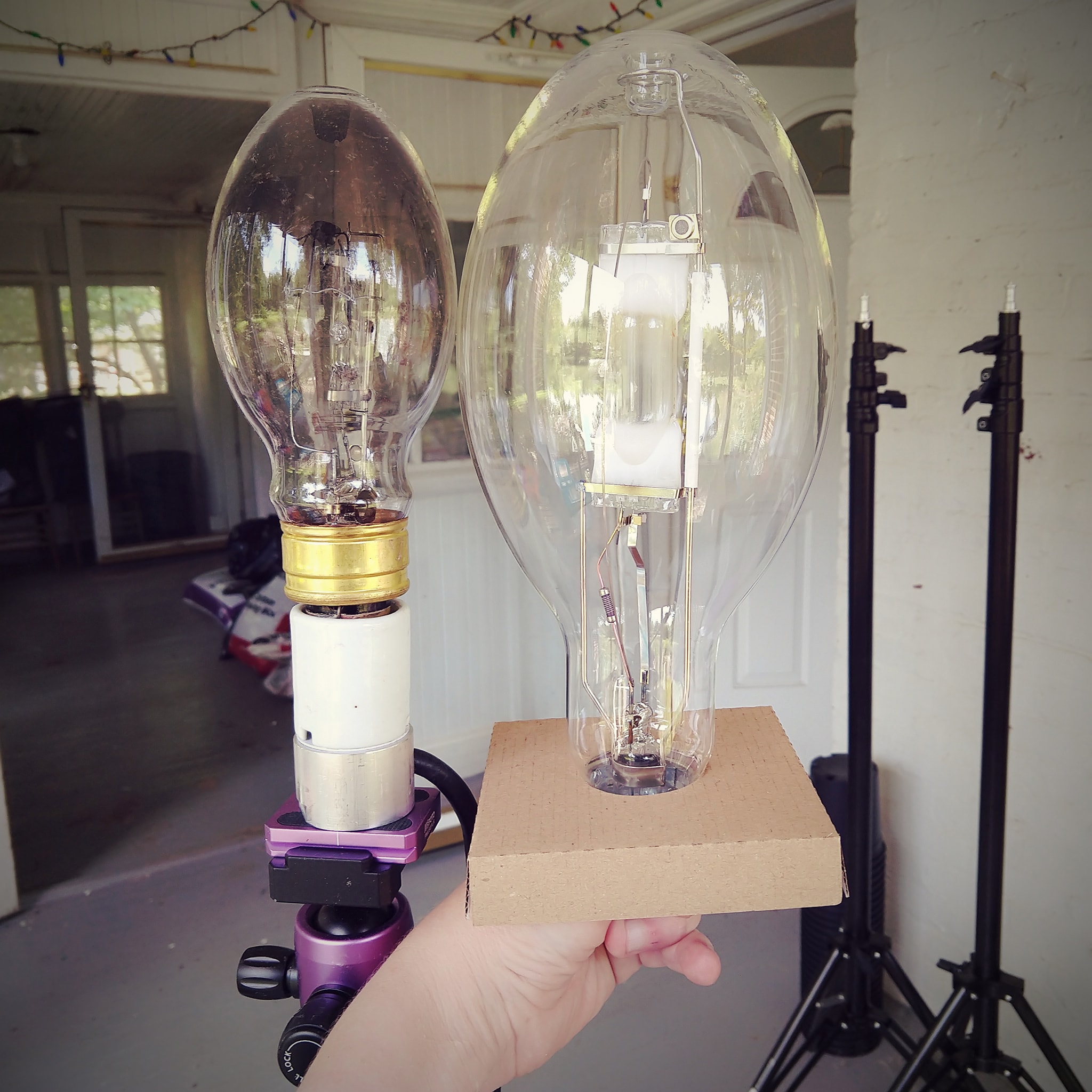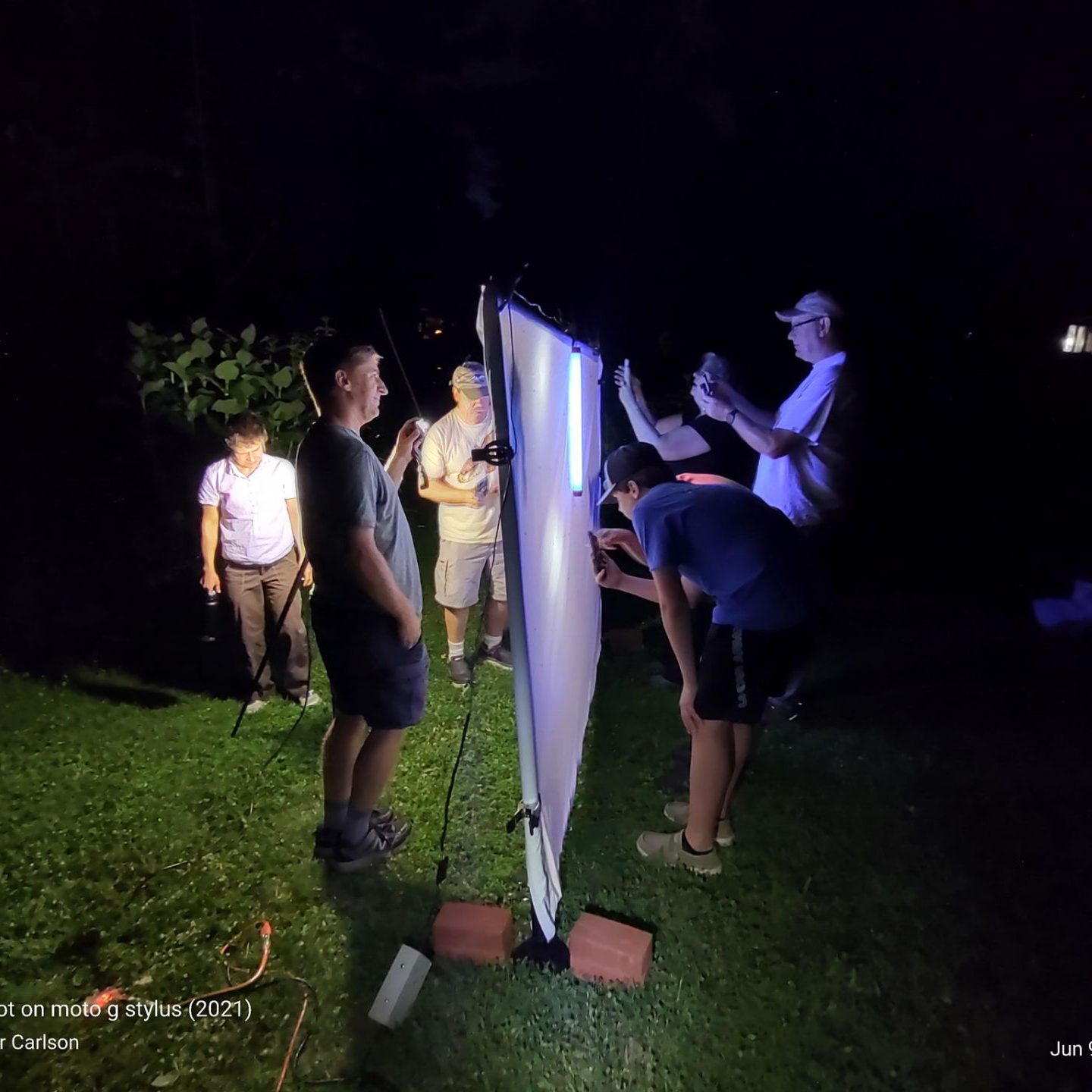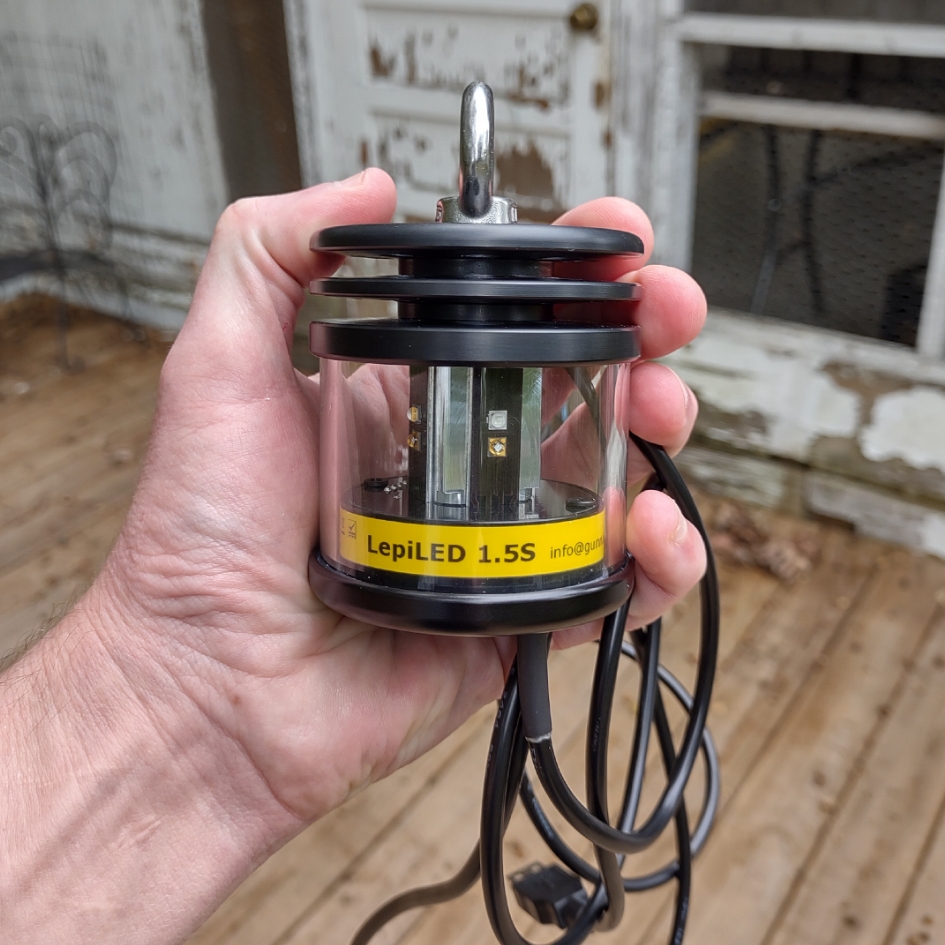What is Mothing?
It’s a fun hobby of drawing moths to a collecting sheet using a light source. Though moths are nocturnal they are drawn to light sources like porch lights, UV lights, mercury vapor lights, and retina searing 400 watt metal halid lights.
What should I bring to moth night?
Please bring a flashlight or wear a head lamp. Bring with you whatever will make you comfortable such as an outdoor chair, non-alcoholic beverage, snacks. We suggest bringing a camera and field guide.
What kind of moths will we see?
There are some fairly common moths we expect to see, but let’s be honest: we’re all hoping that Mothra will appear! Ok, it’s always cool when some of the Big Ones grace us with their presence.
Why bother to look for moths?
Moths are very important insects! Reasons to love moths: pollinators, indicator species, food for other critters. Yes, there are those moths that eat crops, carpets, wool sweaters, and laugh maniacally when you act afraid of them. But a world without moths would not be a very pleasant world.
What will you provide?
In addition to our collecting sheets we provide UV protective eyewear, sunscreen, field guide, lighted magnifying glass, and hopefully interesting conversation.
